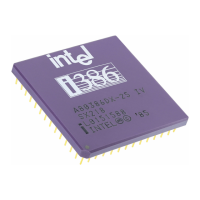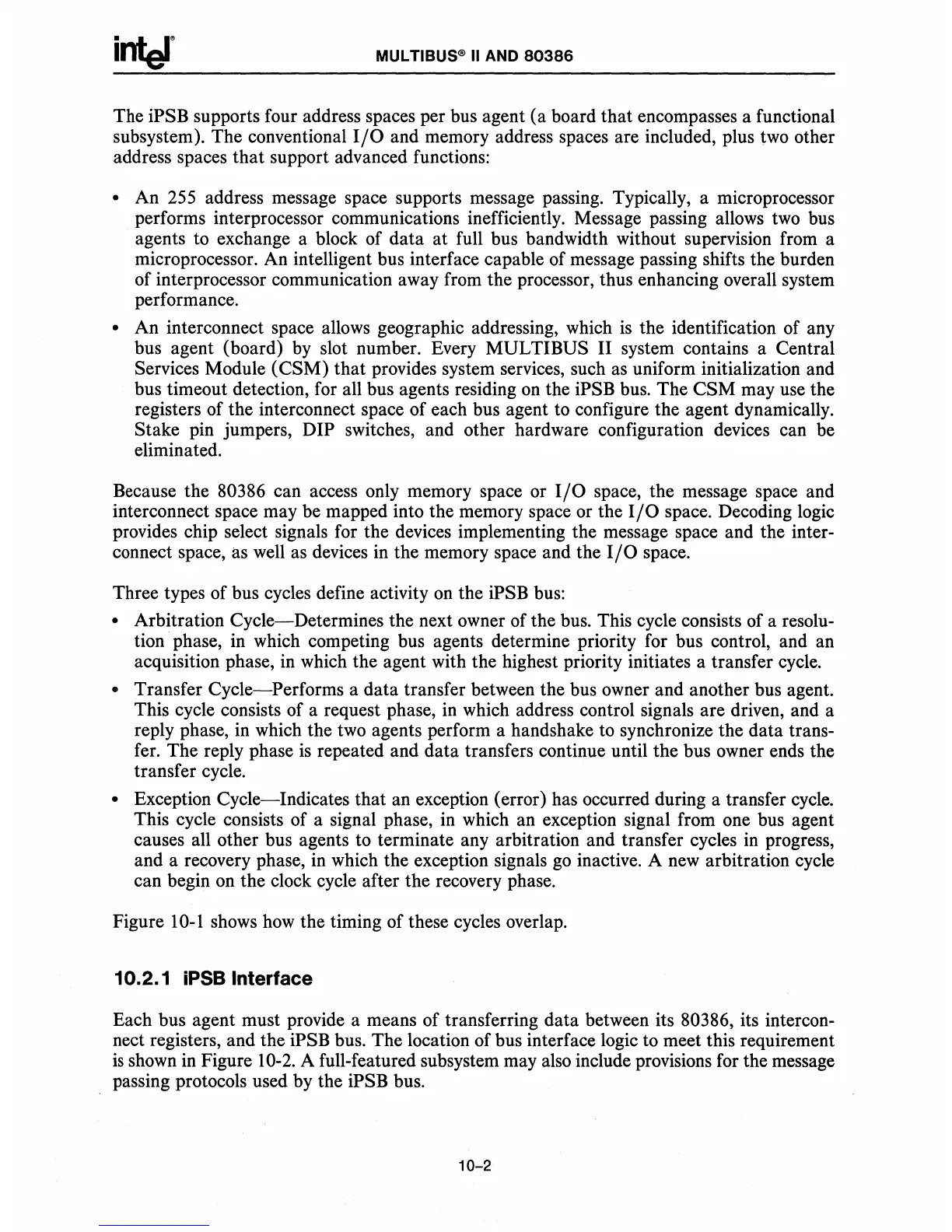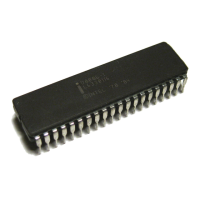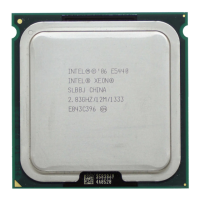MUL TIBUS®
1\
AND
80386
The iPSB supports four address spaces per bus agent (a board that encompasses a functional
subsystem). The conventional
I/O
and memory address spaces are included, plus two other
address spaces that support advanced functions:
• An 255 address message space supports message passing. Typically, a microprocessor
performs interprocessor communications inefficiently. Message passing allows
two
bus
agents to exchange a block of data at full bus bandwidth without supervision from a
microprocessor. An intelligent bus interface capable of message passing shifts the burden
of interprocessor communication away from the processor, thus enhancing overall system
performance.
• An interconnect space allows geographic addressing, which
is
the identification of any
bus agent (board)
by
slot number. Every MULTIBUS II system contains a Central
Services Module
(CSM) that provides system services, such
as
uniform initialization and
bus timeout detection, for all bus agents residing
on
the iPSB bus. The CSM may use the
registers of the interconnect space of each bus agent to configure the agent dynamically.
Stake pin jumpers,
DIP
switches, and other hardware configuration devices can be
eliminated.
Because the
80386 can access only memory space or
I/O
space, the message space and
interconnect space may be mapped into the memory space or the
I/O
space. Decoding logic
provides chip select signals for the devices implementing the message space and the
inter-
connect space,
as
well
as
devices
in
the memory space and the
I/O
space.
Three types of bus cycles define activity
on
the iPSB bus:
• Arbitration Cycle-Determines the next owner of the bus. This cycle consists of a resolu-
tion phase, in which competing bus agents determine priority for bus control, and an
acquisition phase,
in
which the agent with the highest priority initiates a transfer cycle.
• Transfer
Cycle-Performs
a data transfer between the bus owner and another bus agent.
This cycle consists of a request phase,
in
which address control signals are driven, and a
reply phase, in which the two agents perform a handshake to synchronize the data
trans-
fer. The reply phase
is
repeated and data transfers continue until the bus owner ends the
transfer cycle.
• Exception Cycle-Indicates that an exception (error) has occurred during a transfer
cycle.
This cycle consists of a signal phase, in which an exception signal from one bus agent
causes all other bus agents to terminate any arbitration and transfer cycles
in
progress,
and a recovery phase,
in
which the exception signals
go
inactive. A
new
arbitration cycle
can begin
on
the clock cycle after the recovery phase.
Figure
10-1
shows
how
the timing of these cycles overlap.
10.2.1
iPSB
Interface
Each bus agent must provide a means of transferring data between its 80386, its intercon-
nect registers, and the iPSB bus. The location of bus interface logic to meet this requirement
is
shown in Figure
10-2.
A full-featured subsystem may also include provisions for the message
passing protocols used by the
iPSB bus.
10-2

